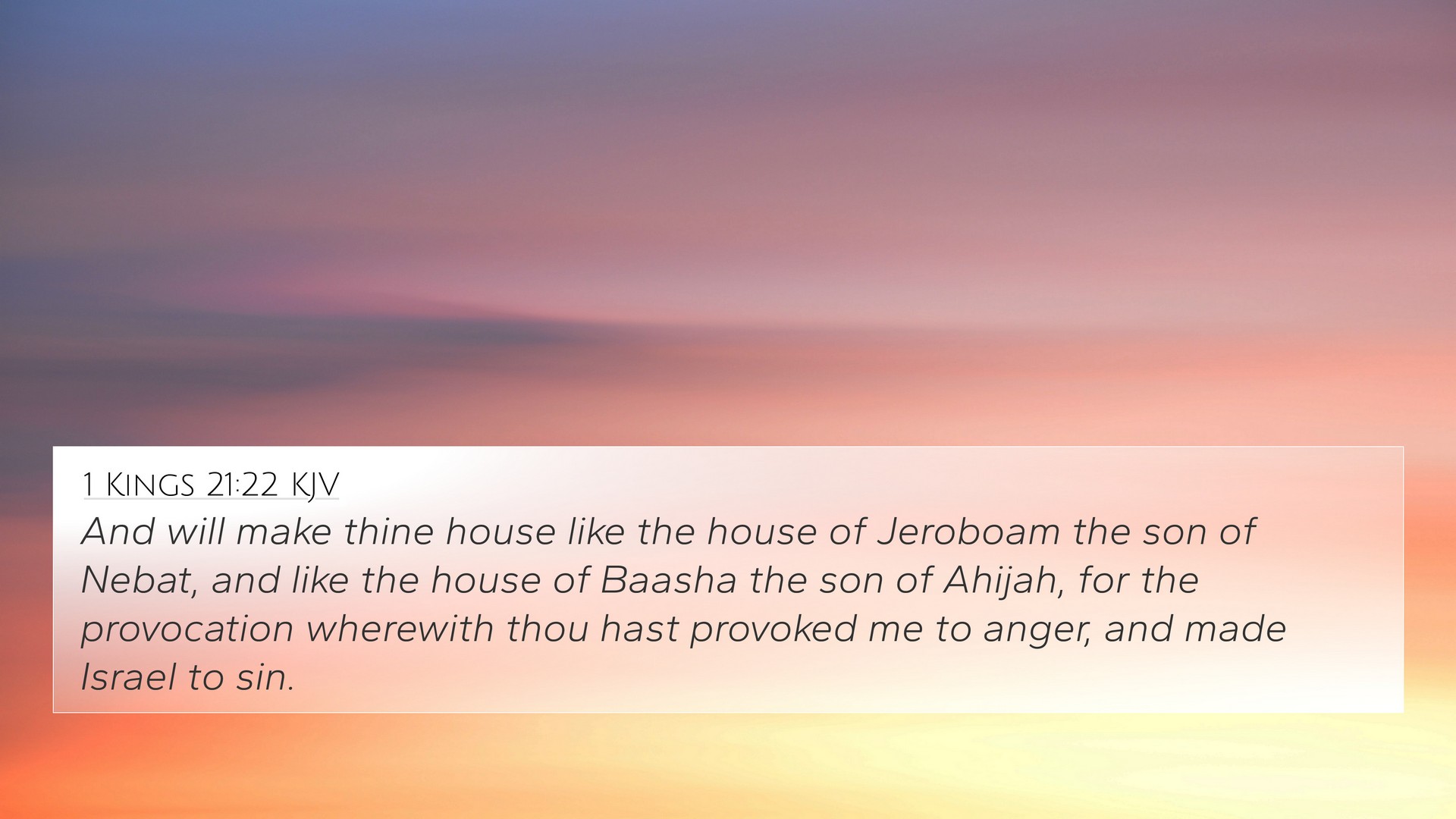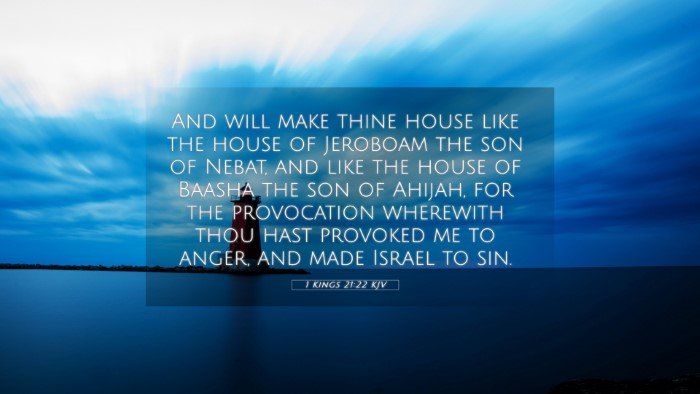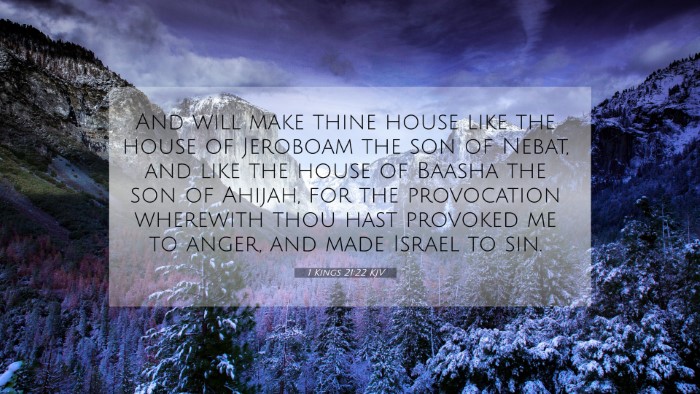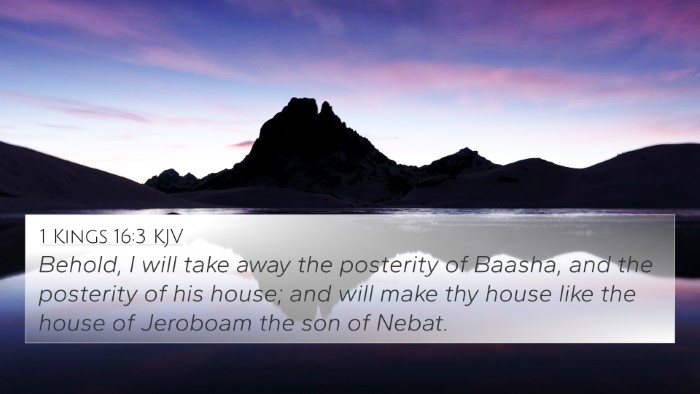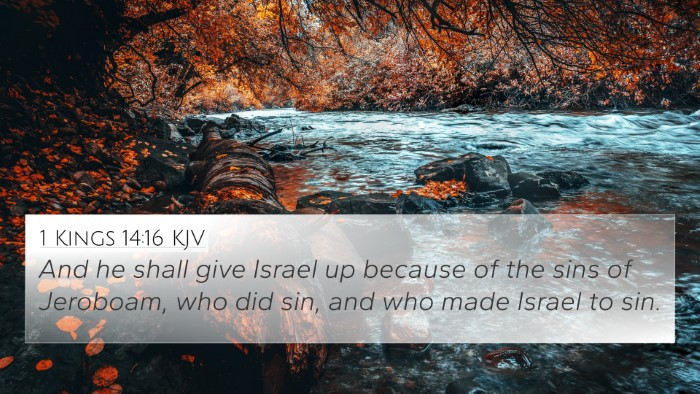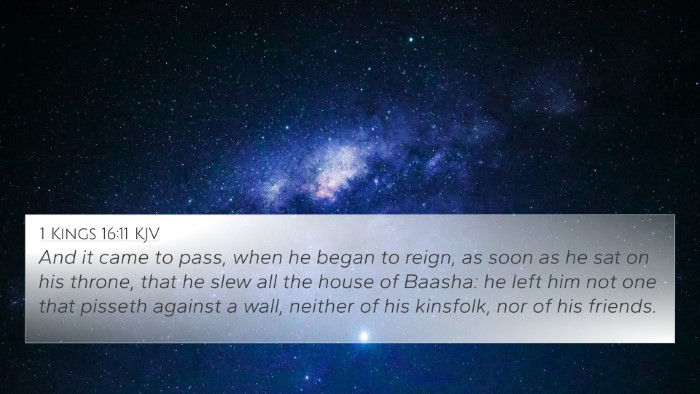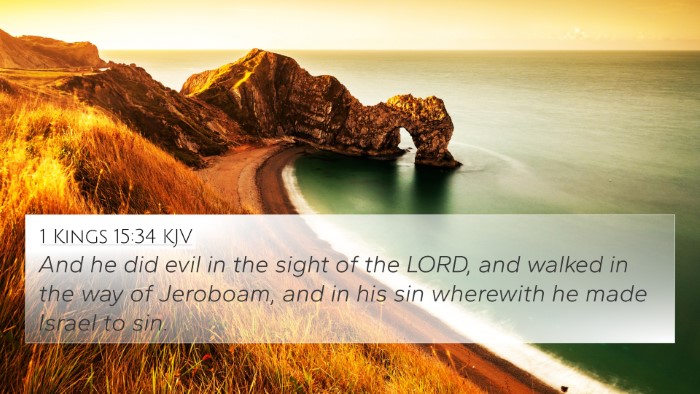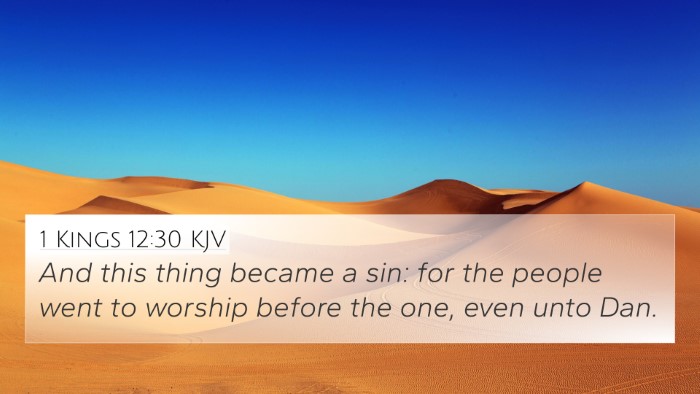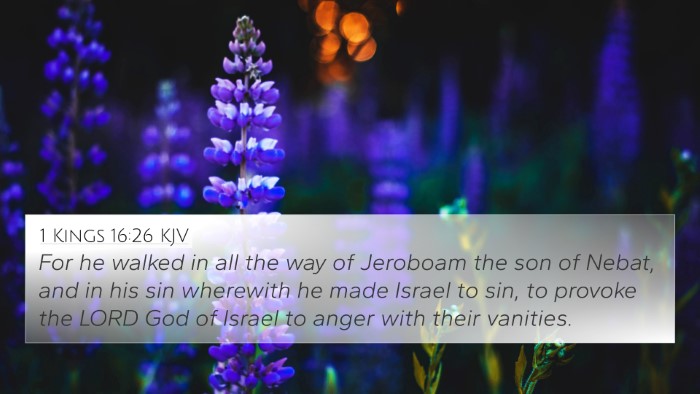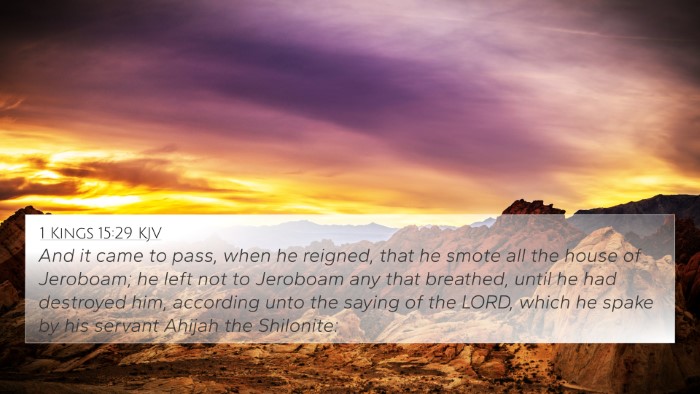Understanding 1 Kings 21:22
Verse Summary: 1 Kings 21:22 states, "And will make thy house like the house of Jeroboam the son of Nebat, and like the house of Baasha the son of Ahijah, for the provocation wherewith thou hast provoked me to anger, and made Israel to sin." This verse refers to divine judgment upon King Ahab for his sins, particularly the murder of Naboth and the idolatry introduced into Israel.
Commentary Insights
Matthew Henry's Commentary
Fatal Consequences of Sin: Henry emphasizes that Ahab's egregious sins not only provoked the Lord's anger but also had lasting consequences for his dynasty. By comparing Ahab's fate to the houses of Jeroboam and Baasha, both of whom faced divine retribution due to leading Israel into sin, it illustrates that unrighteousness leads to downfall.
Role of Divine Judgment: Henry notes the certainty of God's pronouncements. The judgment is precisely defined, showing that God is aware of and deeply affected by the actions of His people and leaders, and He responds in accordance with His justice.
Albert Barnes' Commentary
Historical Context: Barnes provides valuable historical context, stating that the reference to Jeroboam and Baasha serves as a reminder of how transgressions against God's commands lead to destruction. Ahab's wickedness is not only a personal failing but a national crisis, affecting the entirety of Israel.
God's Mercy Versus Judgment: Barnes contrasts God's willingness to forgive with the inevitable consequences that arise from persistent sin. He highlights that while God is merciful, His justice ensures that sin cannot go unpunished.
Adam Clarke's Commentary
Symbolism of Jeroboam and Baasha: Clarke elaborates on the symbolism behind the names mentioned in this verse. Jeroboam represents division and idolatry, while Baasha represents a reign characterized by bloodshed and conflict. Ahab’s relationship with these figures signifies his complete alignment with their sinful actions.
Implications for Leadership: Clarke posits that the actions of rulers have profound implications on their subjects. Ahab’s sins serve to illustrate how leaders can lead nations astray and incur severe consequences not only for themselves but for their entire people.
Connections with Other Scriptures
- 1 Kings 14:10-11 - God warns of judgment against Jeroboam for leading Israel into sin.
- 1 Kings 15:29 - The fate of Baasha's house, echoing Ahab’s imminent judgment.
- 2 Kings 9:10 - The prophecy of judgment against Ahab in relation to Jezebel's wickedness.
- Deuteronomy 13:5 - The consequences of leading others to idolatry as a serious offense against God.
- Hosea 4:17 - A reminder of Israel's sin against God and His imminent judgment.
- Micah 6:16 - Ahab’s actions are a part of Israel’s broader disobedience to God's covenant.
- Romans 11:22 - The severity of God's judgment and goodness, applicable in understanding divine repercussions.
Thematic Connections
This verse points towards a significant theme of divine judgment in the Bible, where the actions of leaders have dire consequences for the nation and its people. Additionally, it brings to light the recurring theme of idolatry and sin leading to destruction, a central message throughout the Old Testament. The parallels drawn between Ahab and previous disobedient kings bolster the understanding that God's pattern of justice is consistent throughout the scriptures.
Conclusion
1 Kings 21:22 serves as a sobering reminder of the nature of God’s justice in relation to sin and leadership. Through **cross-referencing Biblical texts** and examining inter-Biblical dialogue, we see the narrative folds into a larger conversation about obedience, consequences, and the nature of divine governance. The echoes of Ahab's story model not just historical lessons but timeless principles relevant for all believers today.
Tools for Bible Cross-Referencing
For enhanced study of themes such as those illustrated in 1 Kings 21:22, consider utilizing various Bible reference resources and systems designed for thorough investigation of scripture. Equipped with tools like a Bible concordance, you can explore deep connections between verses and glean insights that enrich your understanding of God's Word.
